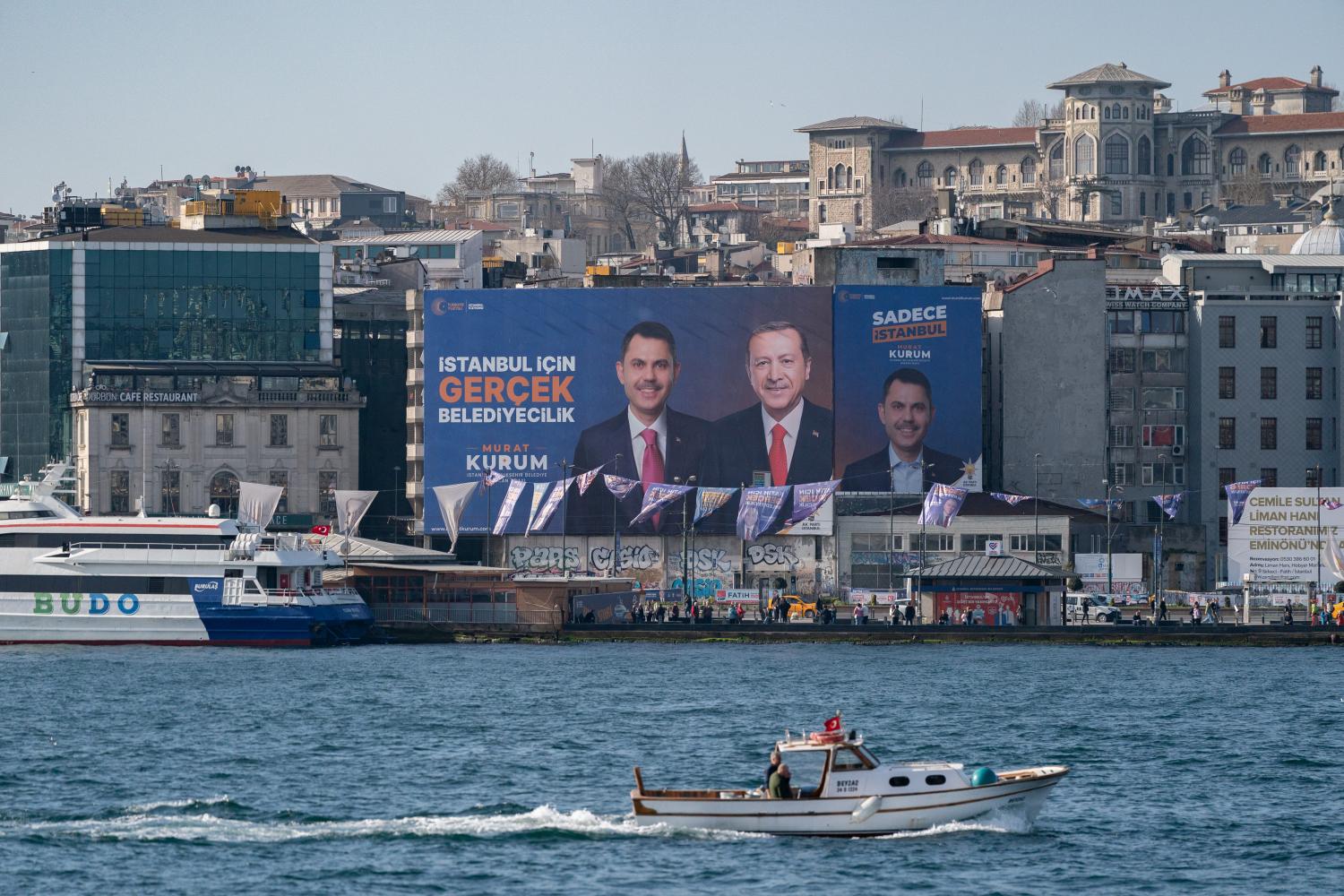Recent local elections delivered a stunning blow to President Recep Tayyip Erdoğan, marking his most significant electoral defeat to date. The loss wasn't just any setback; it saw the secular opposition CHP taking control of 35 cities (representing around 80% of Türkiye's GDP and more than 60% of its population), surpassing the 24 for Erdoğan’s AK Party.
The election result raises questions about whether a seismic shift in domestic politics will alter Turkish foreign policy.
The election was noticeably swayed by the cost-of-living crisis. Inflation hit 68.5% and Türkiye's hunger threshold now exceeds the weekly minimum wage by US$93. Budget shortfall and dwindling currency reserves raise further alarms. The nation’s economic fabric is closely knit with the West, especially the European Union, which remains Türkiye's top trading partner, absorbing 36% of its exports in 2023. The EU also leads in Türkiye's foreign direct investment, making up 59% of investments over the last 20 years. Thus, modernising the Customs Union to include services remains a priority. The election results also boosted Istanbul Mayor İmamoğlu as a major competitor to Erdoğan, making economic recovery even more crucial to maintaining his position.
Other than continuing to promote Türkiye's economic interests, four recent developments illuminate the priorities of Turkish foreign policy for the foreseeable future.
The first is newfound momentum in relations with the United States and Egypt. The recent thaw in Türkiye-US relations is highlighted by the conclusion of a deal to sell Türkiye more F-16 fighter aircraft and Ankara’s approval of Sweden’s entry to NATO. Fulfilment of Erdoğan’s long-sought visit to the White House in May indicated further momentum. However, relations between the United States and the Kurdish separatist groups PKK and YPG hinder a full reset – the Kurdistan Workers' Party (PKK) is classified as a terrorist organisation by Western countries, including the United States, but Türkiye contends that the People's Protection Units (YPG), a Kurdish militant group based in Syria that attracts US support, is closely tied to the PKK. Türkiye’s aspirations to rejoin the F-35 stealth aircraft program, it's desire to seek relief from CAATSA sanctions, and ongoing controversy surrounding Türkiye's acquisition of advanced Russian air defence systems also strain relations with the United States.
In February, Erdoğan's first visit to Cairo since 2012 to meet President Sisi symbolised Türkiye's wider reconciliation efforts with the Middle East. Ankara's humanitarian role in Rafah, coupled with its potential to facilitate inter-Palestinian dialogue, brings Egypt and Türkiye closer, despite their differing stakes in the Libyan conflict and Eastern Mediterranean issues.
The second development is Türkiye's position on Ukraine, where it must continue its balancing act of being pro-Ukraine without positioning itself as anti-Russia.
The Ukraine war underscored Türkiye's geopolitical relevance to the West. Immediately after the Russian offensive in 2022, Ankara invoked provisions of the 1936 Montreux Convention prohibiting the passage of Russian warships through Turkish straits. Subsequently, its mediation of a grain deal between the combatants marked a diplomatic triumph. Ankara wants to maintain this role, backing Ukraine with military equipment but abstaining from aligning with Western sanctions against Russia, keeping its deep trade and energy connections intact.
This balancing act showcases how Ankara views the world, demonstrating a readiness to engage with all parties while maximising its autonomy. Last month, Ankara hosted both Russian Foreign Minister Lavrov and Ukrainian President Zelenskyy.
Third, eliminating PKK/YPG remains a top priority for Ankara. In March, Türkiye and Iraq reached a historic security agreement resulting in the official prohibition of PKK by Iraq. The deal furthers Türkiye's plan to extend a military campaign into northern Iraq aiming to establish a 40km security zone beyond its borders. Türkiye also aims to neutralise the PKK's influence over the advancement of the Development Road Project, which Erdoğan promotes as an alternative to the India-Middle East-Europe Economic Corridor (IMEC) initiative, supported by Israel and the United Arab Emirates, which bypasses both Türkiye and Iraq.
Erdoğan's final priority is Global South outreach. In February, Türkiye and Somalia signed a significant agreement granting Türkiye control over Somalia's maritime zones for the coming decade, positioning it as a key player in the Red Sea amid rising US-Houthi tensions in Yemen and Israel’s military offensive in Palestine. Somalia stands as a central component of Türkiye's increasing footprint in Africa.

